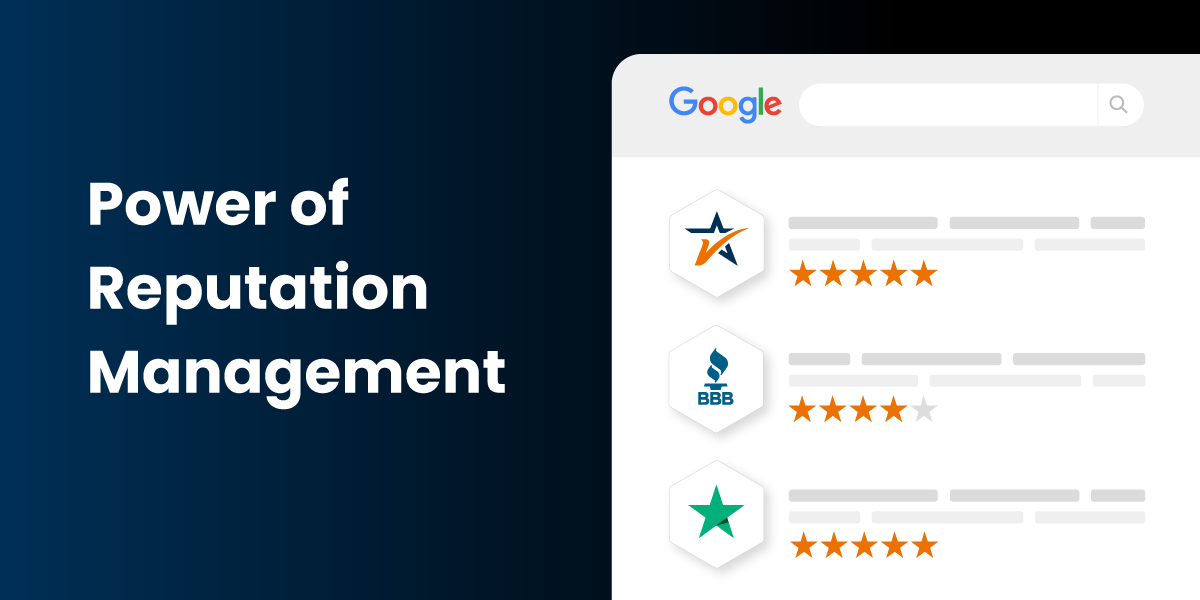The Power of Online Reputation Management for Business Success
Online reputation management has become a crucial aspect of running a successful business. With consumers relying heavily on the internet to inform their purchasing decisions, a positive online reputation can make or break a company. Understanding the importance of managing your reputation online is key to staying competitive in an increasingly connected world.
Understanding Online Reputation Management
First, let's define what online reputation management is. Put simply, it is the practice of influencing and controlling an organization's online reputation. This involves monitoring and shaping the way a business is perceived online, with the goal of creating a positive image that reinforces trust and confidence among customers and stakeholders.
Online reputation management is a multifaceted process that requires a deep understanding of the digital landscape. It involves actively monitoring, managing, and improving the online reputation of a business or individual. This includes monitoring online mentions and reviews, responding to customer feedback, and implementing strategies to enhance the overall perception of the brand.
Over the years, online reputation management has evolved to encompass a wide range of strategies and techniques. Initially, it primarily involved tracking mentions of a brand or individual online and responding to any negative comments or reviews. Now, it has become a more proactive and comprehensive approach to building and maintaining a positive online presence.
What Is Online Reputation Management?
Online reputation management goes beyond just public relations. While PR focuses on influencing public perception through media and traditional channels, online reputation management encompasses the broader online landscape, including review sites, social media platforms, forums, and search engine results.
A company's online reputation can make or break its success. With the rise of social media and online review platforms, customers have more power than ever to share their experiences and opinions. This means that businesses need to actively manage their online reputation to ensure that they are presenting themselves in the best possible light.
Online reputation management involves a proactive approach to shaping public perception. It requires businesses to actively engage with their audience, respond to feedback, and address any negative comments or reviews promptly and effectively. By doing so, they can build trust, credibility, and loyalty among their customers.
The Evolution of Online Reputation Management
The field of online reputation management has grown significantly in recent years, driven by the increasing influence of the internet in our lives. As more and more people turn to the internet to research products and services, businesses have recognized the need to actively manage their online presence.
Initially, online reputation management was mainly a reactive process, primarily focused on damage control and addressing negative feedback. However, as businesses realized the potential impact of online reputation on their success, the focus shifted towards proactive management and building a positive online image.
Today, online reputation management involves a range of strategies, including creating and distributing positive content, engaging with customers on social media, managing online reviews, and leveraging search engine optimization techniques to influence search results. It requires a deep understanding of digital marketing and effective communication skills to navigate the complex online landscape.
Online reputation management is not a one-time effort. It requires ongoing monitoring and adaptation to stay ahead of any potential issues or changes in public perception. Businesses must be vigilant in their efforts to maintain a positive online reputation and be prepared to address any challenges that may arise.
Online reputation management is a critical aspect of modern business. It involves actively monitoring, managing, and improving the online reputation of a business or individual to create a positive image that fosters trust and confidence. By understanding the evolution of online reputation management and implementing effective strategies, businesses can enhance their online presence and build strong relationships with their customers.
The Importance of a Positive Online Reputation
A positive online reputation is vital for business success. It directly affects consumer trust and purchasing decisions, as well as the overall perception of a brand. In the digital age, a poor online reputation can have serious consequences, including lost sales, damaged brand image, and negative word-of-mouth.
But what exactly does it mean to have a positive online reputation? It goes beyond just having a few positive reviews here and there. It means consistently delivering exceptional products or services, providing excellent customer service, and actively engaging with customers online. It means being transparent, responsive, and trustworthy.
How Online Reputation Affects Consumer Trust
Consumers today trust online reviews and recommendations as much as personal recommendations. Hence, a strong online reputation is crucial for building trust and credibility among potential customers. Positive reviews and testimonials can greatly influence consumers' decision-making process, leading to increased sales and customer loyalty.
Imagine you're in the market for a new smartphone. You come across two brands that offer similar features and prices. However, one brand has numerous positive reviews praising its durability, performance, and customer service, while the other brand has a mix of negative and positive reviews. Which brand would you trust and choose? Most likely, you would go with the brand that has a positive online reputation.
On the other hand, negative reviews and a poor online reputation can erode consumer trust and discourage potential customers from engaging with a brand. Studies have shown that a single negative review has the power to drive away a significant number of potential customers. Therefore, it is imperative for businesses to actively manage and maintain a positive online reputation.
The Impact of Negative Reviews and How to Handle Them
Negative reviews are inevitable for any business. However, it is how a company handles these reviews that can make all the difference. Promptly and publicly addressing customer concerns demonstrates a commitment to customer satisfaction and shows that the business values feedback.
Let's say a customer leaves a negative review about a restaurant, complaining about the slow service and mediocre food. The restaurant could choose to ignore the review, hoping it will go unnoticed. But this would only worsen the situation. Instead, the restaurant can respond to the review, apologizing for the poor experience and offering a solution. This not only shows the customer that their feedback is valued but also shows potential customers that the restaurant cares about their patrons' satisfaction.
By responding to negative reviews in a respectful and empathetic manner, businesses have an opportunity to turn a negative situation into a positive one. Offering solutions, compensations, or simply expressing regret for any inconvenience can go a long way in mitigating the impact of negative reviews and preserving the reputation of the brand.
Businesses can take proactive steps to prevent negative reviews in the first place. This can include providing exceptional customer service, addressing issues before they escalate, and actively seeking feedback from customers. By consistently delivering a positive customer experience, businesses can build a strong online reputation that can withstand the occasional negative review.
A positive online reputation is critical for business success in today's digital landscape. It not only influences consumer trust and purchasing decisions but also shapes the overall perception of a brand. By actively managing and maintaining a positive online reputation, businesses can thrive in the competitive online marketplace and build long-lasting customer relationships.
The Role of Social Media in Online Reputation Management
Social media plays a pivotal role in online reputation management. With billions of active users, platforms like Facebook, Tik Tok, and Instagram have become powerful tools for businesses to connect with their audience, build brand loyalty, and manage their online reputation.
Utilizing Social Media for Reputation Management
One way businesses can leverage social media for reputation management is by actively engaging with their followers. By responding to comments, answering questions, and sharing valuable content, businesses can establish themselves as reliable and trustworthy brands.
Social media also provides an opportunity for businesses to showcase their positive aspects, such as community involvement, philanthropy, or environmental initiatives. By highlighting these efforts, companies can enhance their reputation and differentiate themselves from competitors.
Case Studies of Social Media Reputation Crises
However, it's important to recognize that social media can also be a double-edged sword. One misstep or a poorly handled situation on social media can quickly escalate into a reputation crisis. Numerous examples exist of brands that faced severe reputational damage due to controversial posts, offensive comments, or ineffective crisis management.
These case studies serve as a reminder of the need for businesses to have a well-defined social media strategy, clear guidelines for social media use, and a plan in place to address any potential reputation crises.
Strategies for Effective Online Reputation Management
Managing your online reputation effectively requires a strategic and proactive approach. While each business is unique, there are some common strategies that can help businesses enhance their online reputation and maintain a positive image.
Proactive Measures for Reputation Management
A proactive approach to online reputation management involves regularly monitoring online mentions, reviews, and social media interactions to quickly address any potential issues. By being proactive, businesses have the opportunity to resolve customer concerns before they escalate and create negative sentiment.
Creating and distributing positive content, such as blog posts, articles, and videos, can also help establish a strong online presence and build a positive brand image. This content should reflect the company's values, expertise, and commitment to customer satisfaction.
Responding to Negative Feedback: Best Practices
When it comes to responding to negative feedback, there are some best practices to keep in mind. Firstly, respond promptly and acknowledge the customer's concerns. Show empathy and understanding, and offer a solution or a means of further communication to address the issue.
It is essential to remain professional and refrain from engaging in arguments or defending the company excessively. Instead, focus on resolving the issue and ensuring customer satisfaction. By handling negative feedback effectively, businesses can showcase their commitment to customer service and turn dissatisfied customers into brand advocates.
The Future of Online Reputation Management
The field of online reputation management is continuously evolving. As technology advances and consumer behaviors shift, businesses must stay ahead of the curve to effectively manage their online reputation.
Emerging Trends in Reputation Management
One emerging trend in online reputation management is the use of artificial intelligence and machine learning. These technologies can analyze vast amounts of data to provide real-time insights and help businesses monitor and manage their online reputation more efficiently.
Furthermore, as privacy concerns grow, businesses will need to navigate the complexities of data protection regulations and ensure that their reputation management practices comply with relevant laws.
Preparing Your Business for the Future of Reputation Management
To prepare for the future of online reputation management, businesses should prioritize staying proactive and adaptable. Regularly reassessing and refining reputation management strategies is essential in an ever-changing digital landscape.
Additionally, maintaining open lines of communication with customers and stakeholders and actively engaging with them online will help businesses build trust and mitigate potential reputation risks.
Conclusion
Online reputation management is a critical factor in achieving business success. With the power of the internet shaping consumer behavior, having a positive online reputation is more important than ever. By understanding the fundamentals of online reputation management, businesses can proactively shape their image, build trust, and maintain a competitive edge in the digital marketplace.

 Drive More Visibility, Traffic, and Sales
Drive More Visibility, Traffic, and Sales
